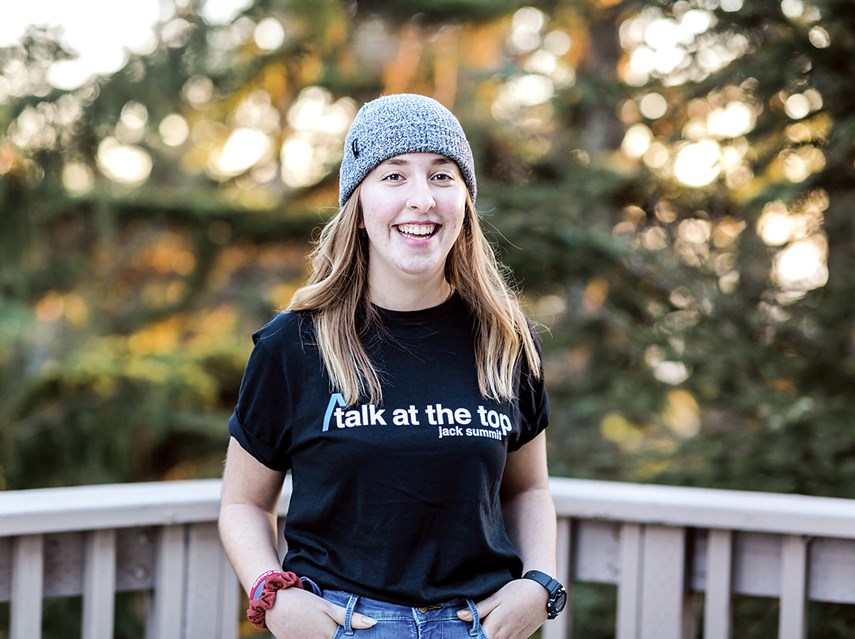Mental health seems to be something we push to the bottom of our priority list, or it’s seen as something that only those who experience significant mental health struggles need to focus on.
Even in my social circles, the topic is made light of when brought up in casual conversations as teens jokingly mention that they “want to die” and my peers agree and brush off the statement by simply saying “same.”
More than 70 high school students came together on Nov. 16, from the North Shore and all the way up the Sea to Sky corridor, to discuss and learn more about mental health and to reduce mental health stigma in our schools and communities.
I was lucky enough to attend and participate in the discussion at Jack.org’s summit, Talk at the Top. I was excited to join for the first time as I had heard about Talk at the Top from friends who came in previous years, and I was intrigued about the complimentary Jack.org swag.
I quickly realized just how significant this event really was.
In any given year, one in five youth in Canada will experience a mental illness, yet according to the Canadian Mental Health Association only one in four receive the services they need. This is often because of a lack of accessibility to resources or because of cost or distance, as well as the stigma surrounding mental health which youth experience in their school and then consequently in their communities.
Even though only one in five will face a mental illness, stigma and lack of resources still affect the other four out of five because we ALL have mental health and we all need to care for it.
Everyone has mental health that can be impacted by our genetics, as well as social determinants that are immediate like your environment (for example, academic pressure or a toxic relationship), or as deeply rooted as your culture and systems of power.
We may not be able to alter someone’s genetic predisposition, but we can certainly change our culture, systems and environments to better support ourselves and each other.
That change needs to happen, and it starts with passionate youth mental health advocates like myself and the young people I met and heard at Talk at the Top.
I was incredibly inspired by all of the speakers and students I heard from, and the stories they told.
Seeing dozens of youth advocates leading the discussion in mental health and creating innovative solutions collaboratively after knowing each other for mere hours, showed me how powerful one voice can be and that we are capable of so much when we unify our voices to make necessary change.
Talk at the Top was an incredible opportunity to share our opinions on issues that are so prevalent to us in such a safe and supportive environment.
As we gathered together and discussed questions that didn’t have conclusive answers or simple solutions, we helped break the silence and shame surrounding youth mental health.
It’s important that we don’t brush this off any longer and that we make changes to ensure that when someone proudly states that they are a mental health advocate, the response they receive will be “same.”
This change starts with empowering young advocates so that we can educate others to further power this youth mental health revolution.
Any young person that wants to get involved can head to Jack.org to learn more and join the movement.
Angelina Sommer is a Grade 12 student at Carson Graham Secondary in North Vancouver.



